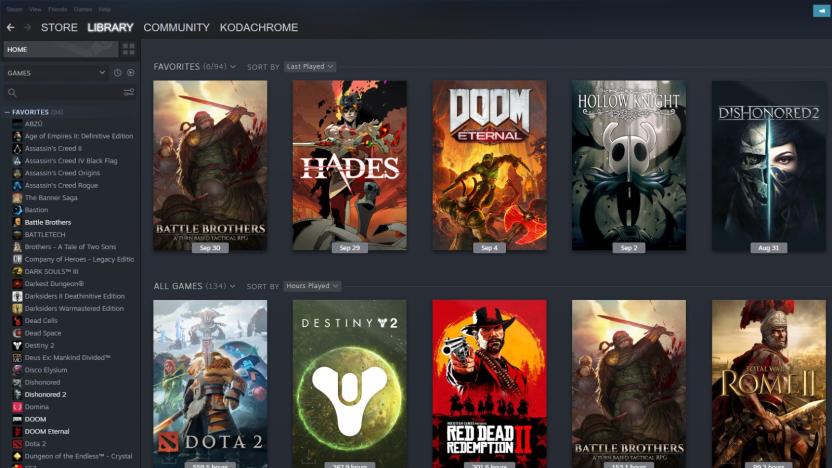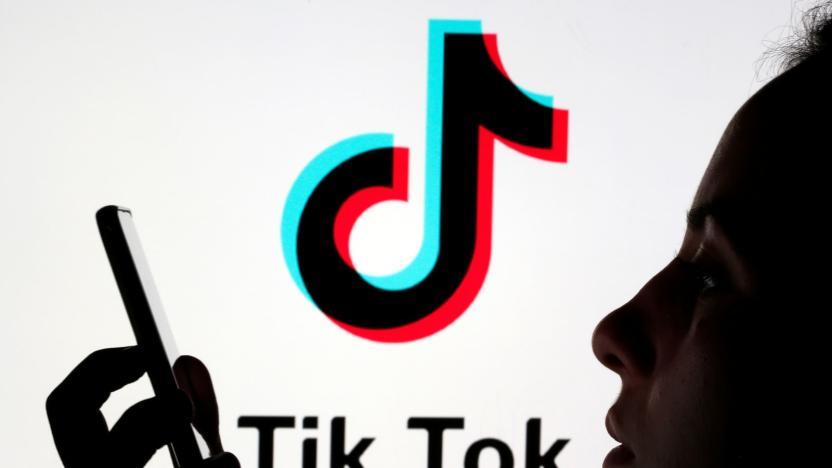Check Point
Latest

Valve patched Steam bugs that could have allowed hackers to take over PCs
Check Point Research found four vulnerabilities within the company’s Steam Sockets network library.

The switch to remote learning has made schools even bigger cyber targets
As homeschooling increased, so did attacks against educational institutions.

Microsoft is patching a dangerous Windows DNS Server exploit
If you're running a Microsoft DNS server, patch it, now.

A Chinese hacking group is reportedly targeting governments across Asia
A Chinese hacking group has been conducting “ongoing” espionage operations on foreign governments across Asia, according to security firm Check Point. Called Naikon, it has reportedly attacked governments in Australia, Indonesia, Philippines, Vietnam, Thailand, Myanmar and Brunei, targeting foreign affairs, science and technology ministries.

Security firm details how hackers stole $1.3 million in wire transfers
The thieves targeted high-ranking officials in those companies, including CEOs and CFOs, via phishing attacks.

Google's security measures failed to find Android malware in Play Store
Google may have introduced a number of security measures to prevent malicious apps from appearing in the Play Store, but they're not watertight. New analysis from Check Point shows that earlier this year, malware was lurking within 56 apps that had been downloaded almost one million times worldwide – its objective, to commit mobile ad fraud.

TikTok fixed a flaw that could have exposed user accounts
TikTok has been the subject of national security concerns for some time, and now things are set to get a little more uncomfortable for the company. According to cybersecurity company Check Point, the popular app had serious vulnerabilities that could have allowed hackers to obtain personal information and manipulate user data.

Russian hackers are hijacking computers at embassies (updated)
Russian hackers have apparently launched cyberattacks against embassies, although it might not be the kind of campaign you're expecting. Check Point Research reports that the attackers have attempted to compromise PCs at embassies for countries like Italy, Bermuda and Kenya by tricking officials into loading malware. Most often, they emailed Excel spreadsheets with malicious macros that would hijack a computer using the popular remote access app TeamViewer.

'SimBad' Android adware was downloaded nearly 150 million times
As much as Google has done to keep malware out of the Play Store, some notable examples still get through. Google has pulled 210 apps from the store after Check Point researchers discovered that they were infected with the same strain of adware. Nicknamed "SimBad" based on the abundance of infected simulator games, the code hid in a bogus ad-serving platform and created a back door that could install rogue apps, direct users to scam websites and show other apps in stores. Check Point believes the apps' developers were tricked into using the platform.

Exploit uses firewalls to hijack smartphones, turns friends into foes
Normally, firewalls at cellular carriers are your best friends, screening out malware before it ever touches your phone. University of Michigan computer science researchers have found that those first lines of defense could be your enemy through a new exploit. As long as a small piece of malware sits on a device, that handset can infer TCP data packet sequence numbers coming from the firewall and hijack a phone's internet traffic with phishing sites, fake messages or other rogue code. The trick works on at least 48 carriers that use firewalls from Check Point, Cisco, Juniper and other networking heavy hitters -- AT&T being one of those providers. Carriers can turn the sequences off, although there are consequences to that as well. The only surefire solution is to either run antivirus apps if you're on a mobile OS like Android or else to run a platform that doesn't allow running unsigned apps at all, like iOS or Windows Phone. Whether or not the exploit is a serious threat is still far from certain, but we'll get a better sense of the risk on May 22nd, when Z. Morley Mao and Zhiyun Qian step up to the podium at an IEEE security symposium and deliver their findings.

Check Point intros ZoneAlarm Z100G wireless router
The security-minded folks at ZoneAlarm are branching out from their cozy nook in the software space into the wild world of hardware, with parent company Check Point announcing its first ZoneAlarm-branded wireless router. While it sure ain't pretty, the Z100G should keep you relatively safe behind its variety of security measures, including firewall, antivirus, and intrusion prevention, in addition to remote access VPN and secure remote desktop features. The router itself is a Super G number, promising speeds up to 108 Mpbs while still, of course, remaining compatible with regular 802.11b and 802.11g-based options, with a promised range of 984 feet indoors (right). Not surprisingly, you'll have to pay a bit of a premium over your run-of-the-mill router to get this one to watch your back, with the Z100G coming in at the $199 price point, although Check Point's knocked that down to $149 'till the end of December. Or you could, you know, buy a dd-wrt or OpenWRT compatible router and save yourself a bundle. Something tells us you're gonna be every bit as safe.[Via eHomeUpgrade]





